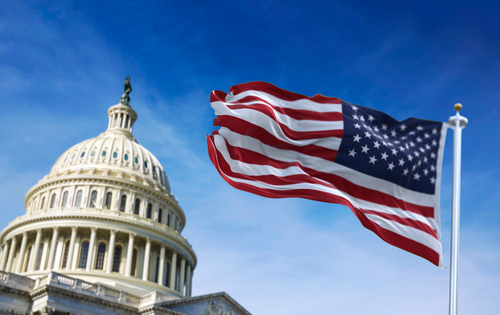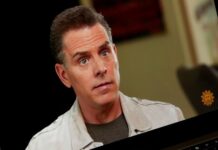
The real scandal in Washington isn’t the threat of a government shutdown, but rather the reckless spending habits of our elected officials. The outcry over potential shutdowns is deafening, yet the same voices remain eerily silent when Congress blatantly disregards its own budgetary rules.
The focus seems to be on ensuring that the government is funded, even if it means expanding the balance sheet with little regard for how the money is spent.
Both Democrats and Republicans are guilty of this fiscal irresponsibility, passing spending bills without having the funds to cover them. This short-term thinking benefits today’s voters at the expense of future taxpayers, many of whom haven’t even been born yet.
Tax credits, loan guarantees, and subsidies are handed out to corporations who would have proceeded with their projects even without these government favors.
Remember when Republican voters were screaming for the House to impeach Joe Biden, Garland, Mayorkas, and Wray, close the border, subpoena Hunter, cut literally any spending, and stop sending $100 billion to Ukraine and all Kevin McCarthy did was open an “impeachment inquiry”…
— DC_Draino (@DC_Draino) October 5, 2023
A prime example of this wastefulness is the Inflation Reduction Act, which allocated billions in subsidies to green energy companies for projects they had already announced before the bill was passed.
Both parties also continue to support subsidies for large agricultural interests, which often result in higher food prices. These subsidies were cleverly bundled into a bill that increased Supplemental Nutrition Assistance Program (SNAP) benefits from $63 billion in 2019 to $145 billion in 2023.
However, the SNAP program has proven ineffective at lifting families out of poverty. Studies show up to 71% of households receiving food stamps contain no workers and only about 6% have a full-time worker.
This creates a disincentive to work, trapping recipients and their children in a cycle of poverty.
The most egregious example of fiscal recklessness is the bipartisan refusal to reform Social Security, Medicare, and Medicaid. Most of this spending is on autopilot, allowing Congress to repeatedly ignore the problem. This is the primary driver of our current and future debt.
To the GOP Patriots who voted to remove McCarthy, I would like to say thank you
Thank you for standing against reckless DC spending
Thank you for standing against “business as usual”
Thank you for standing against the Uniparty
I hope we find a worthy replacement, but whether…
— DC_Draino (@DC_Draino) October 3, 2023
Where is the outrage over this fiscal madness? Where are the demands for politicians to present their plans for reform? These calls are conspicuously absent from those who panic over potential shutdowns.
In about 10 years, Congress’ inaction will lead to across-the-board cuts to entitlement benefits for both the rich and the poor. If legislators choose to borrow more to avoid these cuts rather than reforming the programs, it will add another $116 trillion over 30 years to our debt just for Medicare and Medicaid.
The federal budget is on a dangerous path, and Congress is to blame. Politicians continue to neglect their duty to safeguard our fiscal health. Yet, the “irresponsibility” that most reporters and commentators decry is the risk of a shutdown, not the looming fiscal crisis.












